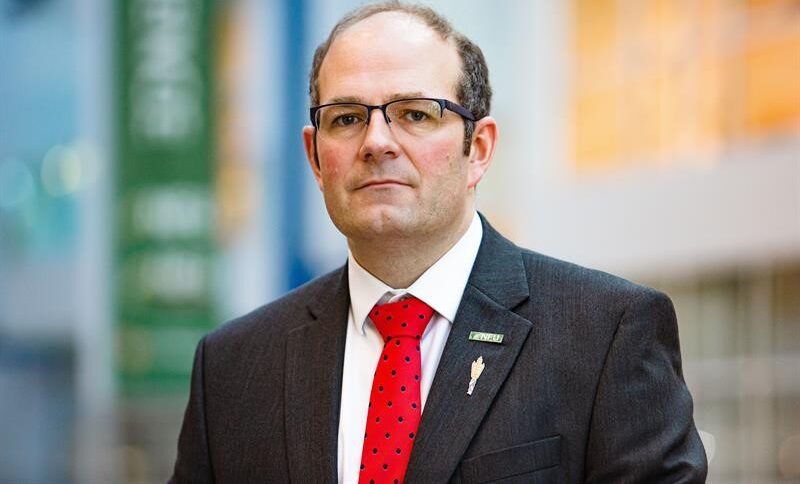The government is facing further calls to take decisive action to improve our national biosecurity to prevent devastating disease outbreaks reaching our livestock.
After a coalition of pig and meat industry bodies made similar calls on Monday, the NFU has joined forces with former Defra minister and Food Standards Agency chair, Lord Rooker, to call for a cross-government biosecurity plan and sufficient investment to counter the biosecurity risks the UK faces.
In one week in January alone, a total of 10 tonnes of illegal meat was removed from the UK’s food chain. In the same month, Germany reported an outbreak of foot-and-mouth disease, with several more confirmed cases in Hungary and Slovakia in Marc. This comes when UK farm businesses are already under huge pressure from rising cases of Avian Influenza and Bluetongue, with pig farmers facing the additional threat of African swine fever.
According to the government’s 2025 National Risk Register, FMD and ASF are two of the biggest threats to biosecurity, mostly due to illegal meat imports. The National Audit Office estimated the cost of the devastating 2001 FMD outbreak to be over £8 billion, while the government estimates an ASF outbreak could cost up to £100 million, the NFU said.
With the risk of animal and plant disease high, the NFU is asking for a clear plan and investment now to prevent potentially crippling costs down the line, and to protect domestic food production at a time when food security is so important.
National security
NFU President Tom Bradshaw said: “Outbreaks of plant or animal disease pose a significant risk to the UK’s food security, which this government has repeatedly stated is critical to national security, especially when coupled with increasing global instability and the impact that can have on the UK’s food supply.
“Disease outbreaks are not only a threat to the national economy, but the UK’s ability to trade. For example, the UK exported nearly £6 billion of animal and plant products in 2024 which relied on the UK’s biological security reputation.
“The recent outbreaks of FMD – a disease which still haunts the memories of so many in our sector – across Europe is hugely worrying for British farmers and we must do everything to prevent it crossing the Channel. And FMD is not the only risk. New breakouts of ASF and known plant diseases like Xylella and tomato brown rugose fruit virus continue to be reported across Europe. The risks are high and new threats are emerging all the time.
“We have seen how disease can bring this country to a standstill – we saw it in 2001 and 2007 with FMD. This government has repeatedly said that food security is national security, and we can’t have food security without biosecurity. In the current economic environment, and with the pressure Avian Influenza and Bluetongue are already putting on the farming sector and government resources, it’s clear that the government cannot afford another disease outbreak.
“Livestock businesses are worried that the current import controls don’t match the scale of the threat to the nation’s biosecurity and food safety.
“In a more uncertain world, we require decisive action to secure Britain’s future, and the government is right when it says that its job is not to step back, but step up. It did just that when it injected a much needed £200 million into the biosecurity centre in Weybridge.
“We now need to see a more comprehensive biosecurity plan, established across government including Defra, Department for Business and Trade and Home Office, and with the necessary investment behind it to minimise the risks to British farming and the food we produce as much as possible.”
Awareness
Lord Rooker, Defra minister during the 2007 FMD outbreak, said: “Food is the UK’s biggest manufacturing sector and if one part of the sector is damaged by a disease outbreak, it can destroy the public’s confidence in the rest of it.
“It’s relevant to note that it’s 25 years since the conception of the Food Standards Agency, which was created to rectify the disastrous collapse of food confidence following the BSE outbreak. The FSA restored people’s confidence in food and that must be maintained at all costs.
“It should be central government which drives biosecurity forward, it’s not just up to Defra. But I’m not sure the awareness of the potential impacts is there.
“This government has a habit of ignoring countryside issues, but this is not a countryside issue, it’s an economic one. If our food manufacturing sector is damaged, then the effect on the rest of the economy is enormous.
“It must be taken seriously. If not, we’re in real trouble.”




